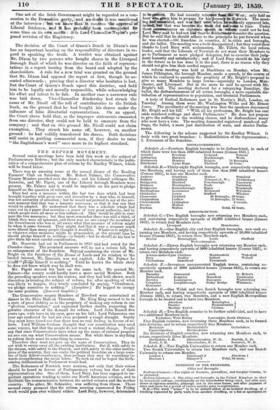The decision of the Court of Queen's Bench in Dixon's
case has an important hearing on the responsibility of directors in re- gard to speaking the truth. A verdict was obtained against Mr. Dixon by two persons who bought shares in the Liverpool Borough Bank of which he was director on the faith of represen- tations in a report issuing from the board and adopted by the shareholders. A rule for a new trial was granted on the ground that Mr. Dixon had opposed the report at first, though he as- sented afterwards ; proving that a director who hesitates is lost. But the Court of Queen's Bench upset this doctrine, and held him to be legally and morally responsible, while acknowledging his effort and intent to be fair. In another case a narrower rule was laid down. Vice-Chancellor Kindersley had struck the name of Mr. Nicoll off the roll of contributories to the British Bank, on the ground that he had bought his shares under the influence of false directorial representations. On an appeal, the Court above held that, as the improper statements emanated from one director, they could not be held to emanate from the company ; and that on this ground Mr. Nicoll could not claim exemption. They struck his name off, however, on another ground : he had validly transferred his shares. Both decisions will assist in guiding commercial men, if they desire to raise "the Englishman's word" once more to its highest standard.


























 Previous page
Previous page